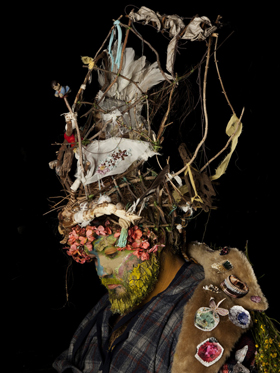Q&A: Alternatives – Sohrab Hura (part 2)
THIS IS PART 2 of the Q&A ‘Alternatives’ interview with Sohrab Hura. You can read Part 1 here.
![]() Working in your present way – letting go and not controlling your practice in terms of professional status building – how do you make a living?
Working in your present way – letting go and not controlling your practice in terms of professional status building – how do you make a living?
I have been lucky. When I have no money something or other happens … people have been kind to me, they’ve given me rolls of film and so on. Financially, I’m not in the best of states, but it is not too difficult to survive. I’m lucky not to have the responsibilities of taking care of a family. I only have to take care of myself. There is a bed for me in my mother’s house and I don’t have to pay rent. I can’t afford to. I don’t smoke. I have pretty much stopped drinking alcohol. When I’m back in India, I have almost no social life anymore, because maintaining a social life is expensive. So, more than actually earning money, I have learned to save money to survive. It doesn’t always make me happy, but I’m convinced I made the right choice.
 As someone who has studied economics and now makes art, do you think that for art to survive it must be tied to markets?
As someone who has studied economics and now makes art, do you think that for art to survive it must be tied to markets?
I’m not the best person to answer this because I think what I’m doing is very risky. Up until now, I’ve been quite lucky to have survived my financial conditions. I think I’m a bit stubborn about my reluctance to merge my work with the so-called markets. To tell you the truth, at times I have had to persevere to keep myself in this financial state, because I think I need to be in a relatively unstable financial situation to work hard. I’m a bit scared of getting comfortable and complacent if my financial situation improved. I’m sure this sounds stupid, but I need to be broke to be motivated.
Now that I am being invited to different places,[1] I’m already feeling the fire within me going out a little, and that is really scary to me.
What is your opinion of the current state of the three main pillars of the contemporary arts system in the ‘West’: the museum, the art biennale, the commercial gallery?
It may be a bit unfair for me to comment on these things since I have never had access to them. It’s difficult for me to be sure if my criticisms are honest or it’s just that I feel jealous that I am not a part of it.
However much I criticise it, the truth is I am human and I may still want to be a part of it one day. Who knows? Maybe I’d be terribly happy if I ever had the opportunity to be a part of that system.
What I can say, as someone young, is that there is this constant pressure to be a part of some system or another, and this is not limited to the West. And in order to fit in, there is this added pressure to adjust and change, and pretty much leave your original identity behind.
I don’t know how much longer I can resist.
 India has museums, biennales and commercial galleries. Do you think they differ significantly from those in the West in how they operate?
India has museums, biennales and commercial galleries. Do you think they differ significantly from those in the West in how they operate?
I’m the worst person to answer this… For me they are all compromised institutions to some degree, both in India and in the West. But in India you don’t have to pay to go to galleries and not as much to go to museums and biennales.
More generally, what are your views on the exhibition as the primary format for engaging with visual art?
It is stupid to think of exhibitions as being the primary means to engage with photography. I am talking specifically about photography here, because, unlike paintings, sculptures and installations, its nature is that it is inherently reproducible. It is limiting to think only in terms of exhibitions. Some images work beautifully as exhibitions, others do not. Those that don’t could work beautifully as books or projections or other things…
For you personally, which medium best suits your intention?
At this very moment with the work that I’m doing, it’s the book.
What advice would you give to a young photographer starting out and unsure which way to travel with their work?
I think you should know what you really want to do with your photography. If it is a tool to earn money and fame, then you should work hard to get that money and fame. If it is truly all about photography then let go of everything and let it be only you and your photography, and nothing else.
_____________________________________________________________________________________________________________________________________________
________________________________________________________________________________________________________________________________________________
THIS IS PART 2 of the Q&A ‘Alternatives’ interview with Sohrab Hura. You can read Part 1 here.
_____________________________________________________________________________________________________________________________________________
Images (from the top):
© Sohrab Hura ‘Yusuke’ 2008
© Sohrab Hura ‘Life is Elsewhere 14: Mahabalipuram’ 2007
~




